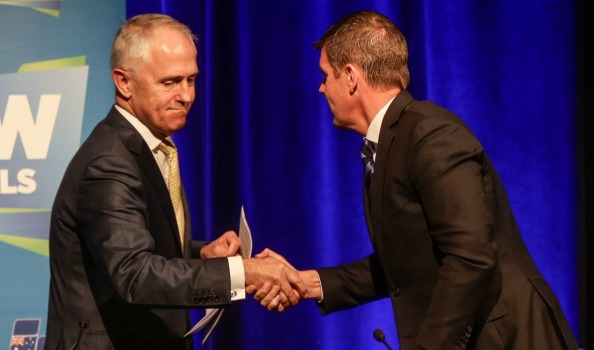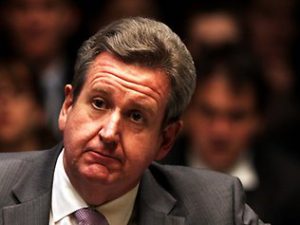
by: Chris Merritt, Legal Affairs Editor, The Australian, November 13, 2015.
Sooner of later, Malcolm Turnbull will inherit the mess that was left unresolved when Barry O’Farrell became the second NSW premier whose departure from politics was caused by ICAC.
O’Farrell’s parting gift was a potential trade dispute with the US and Japan over the loss of $160 million in assets that were confiscated by his government.
How O’Farrell and his advisers ever thought they would get away with this is hard to imagine.
It might be perfectly normal in North Korea, but this sort of state-sponsored theft was never going to stick in a modern democracy where property rights are king. Didn’t O’Farrell see The Castle?
The problem for the Prime Minister is that the federal government, not NSW, is the party to free-trade agreements with both countries. These agreement are designed to prevent exactly the sort of action that was taken by O’Farrell.
This might give the impression that when push comes to shove Turnbull will be on the hook for $160m.
Such an outcome would be completely unfair. Why should taxpayers in other states be forced to pay for the ludicrous actions of one state government that ignored the message from The Castle?
The Japanese and Americans might express their concerns to Turnbull, but there is absolutely no need for the federal government start writing cheques to make amends for the actions of NSW.
There is another way — and the sooner this option is spelled out to O’Farrell’s successor, Mike Baird, the sooner NSW is likely to see the wisdom of writing a few cheques of its own.
Because two treaties are involved, this affair would seem to open the door for the federal government to invoke its external affairs power — the same power that made it possible for the Hawke government to prevent the construction of a dam in Tasmania.
If the federal government is satisfied that O’Farrell’s expropriation of US and Japanese assets was done in breach of treaties, Turnbull might like to have a quiet chat to Baird about the commonwealth’s options.
If NSW declines to compensate the aggrieved shareholders, Turnbull might like to provide Baird with a legal opinion on whether the commonwealth could enact compensation legislation of its own.
It might not be practical for the commonwealth to simply force NSW to do the right thing, but it does provide the states with plenty of money and it might be possible to divert some from NSW in order to maintain comity with the US and Japan.
For Baird, this would be political poison.
His decision to expand ICAC’s powers at a time when its competence is under question would make it difficult to explain an ICAC-driven cut in federal funding to NSW.

